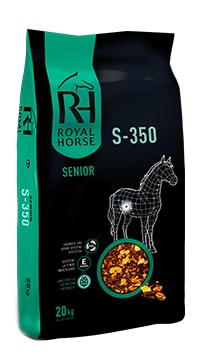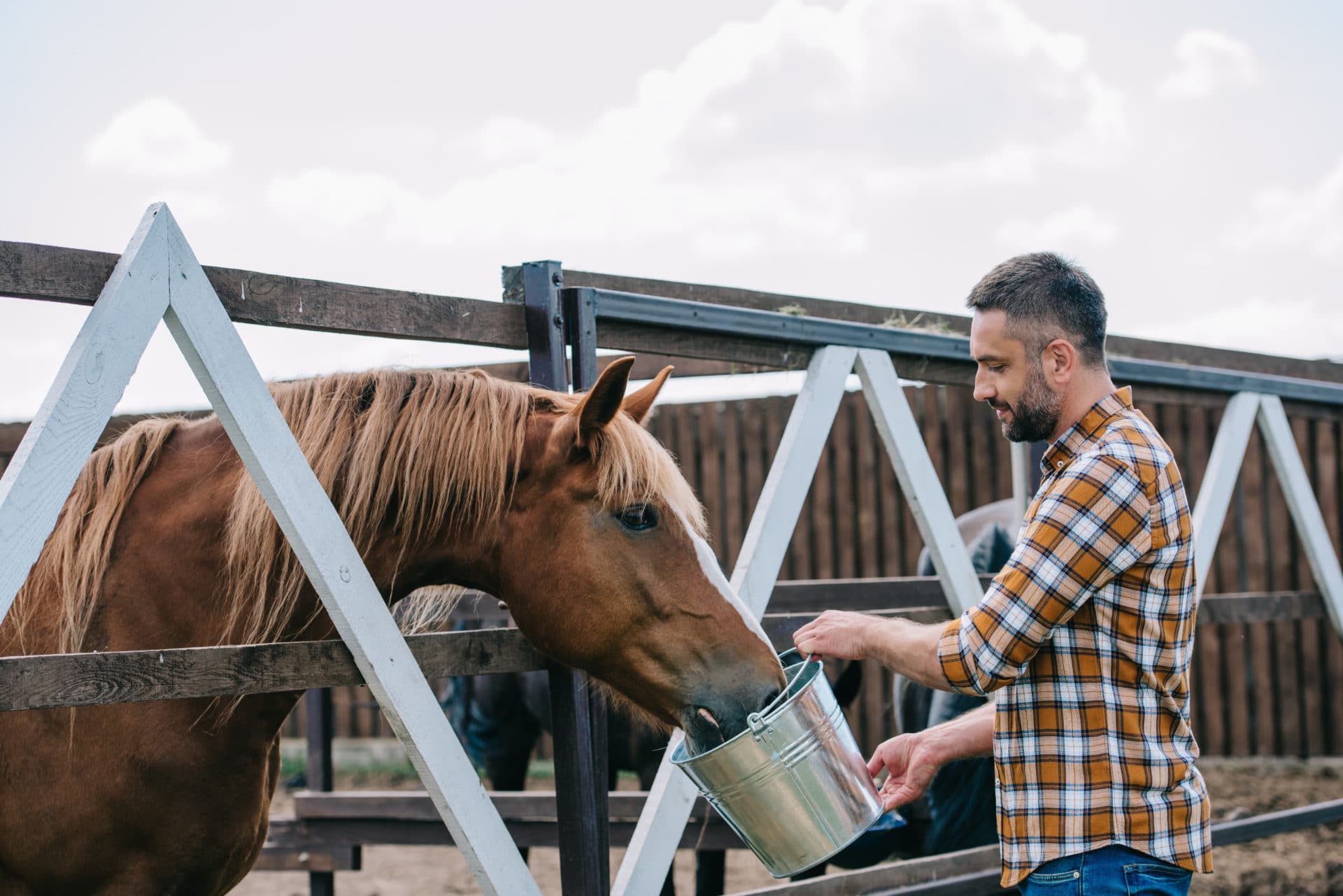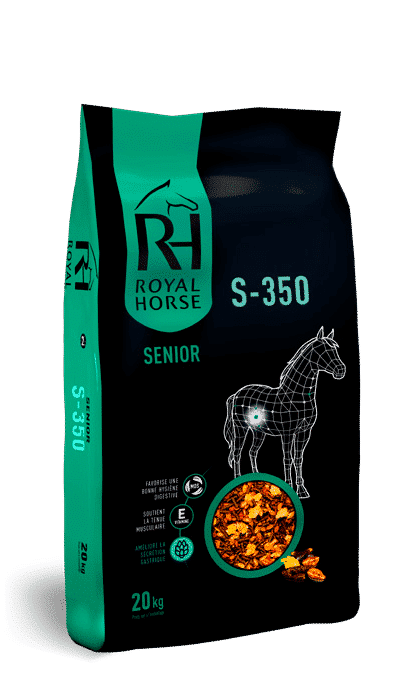The development of horses inevitably ends in old age, a stage of life that can be fraught with problems for equines. Horses generally begin to show signs of aging at about 20 years of age, but this depends on their activity, lifestyle and the attention they have received.
At this stage of their lives, they need nutrition that is adapted to their aging body and that will be able to prevent certain functional disorders.
The provision of a specific feed for the senior horse?
The care of the elderly horse includes its nutrition. The nutrition of older horses must be reasoned according to the pathologies or difficulties they may encounter. All horses are not affected in the same way by aging. Whether they are breeding, competition or leisure horses, they may develop different disorders.
- Teething problems: An older horse may begin to have difficulty chewing its feed. This is due to wear and tear on the dental tables, which can no longer crush the fibers. In this case, fiber-rich feed should be given preference. The pellets can then be slightly moistened to promote disintegration. In extreme cases, the diet for older horses should be adapted with pelleted feed reduced in water and the addition of short fibers that are easier to ingest.
- Loss of condition: an older horse may also have a loss of appetite or loss of muscle mass simply due to the cessation of its activity. In order to maintain his condition, it may be necessary to multiply his meals or to opt for specific feeds for this period of life. It is important to ensure that the feed chosen provides quality proteins, i.e. amino acids known as “limiting” such as lysine and cysteine in particular, and that a good part of the energy can be provided in the form of vegetable fat, which is easier to use and necessary in winter to help thermoregulation.
- A less efficient metabolism: the metabolism of an aging horse will have a lot more difficulty in assimilating rations. Indeed, the walls of the digestive tract may tend to thicken, making it more difficult for nutrients to pass through the body. This means that for this type of product the content and quality of the nutrients must be high. This is what Royal Horse offers with its nutritional solution for older horses, S-350. A balanced food for senior horses in complement of fodder for the maintenance of the muscular masses and the support of the gastric secretions.
- Bone and joint fragility: It is also recommended to include feeds that help prevent problems related to bone fragility (osteoporosis), increasing the vitamin D and calcium content, as well as cupric chelates to strengthen the joints. S-350 also contributes to strengthening the immune system thanks to its content of selenium, vitamin E, zinc chelate (improved absorption) and fatty acids.
- Increased susceptibility to disease: Older horses do not benefit as easily from the horse nutrients in their feed. It is therefore essential to strengthen the horse’s immune system with specific feeds containing more vitamins C and E.
- Lazy bowel syndrome: Older horses are also prone to this syndrome, which consists of a slowing down of the horse’s intestinal transit. This is why it is important to give them feeds rich in cellulose (17 to 18%), such as S-350 (> 17.5% cellulose per kilo).

What other tips are there for caring for an older horse?
An older horse will have more difficulty feeding, especially if it has arthritis. Make sure you provide easy access to feed and water (especially in herds where the most vulnerable horses may be denied access to feed). Also make sure your horse is well covered in winter. It is often the case that an older horse suffers more easily from the cold because it has a harder time maintaining its body temperature.
You should also consult a farrier, who may need to adjust his shoeing or trimming to relieve his pain and promote his well-being.




